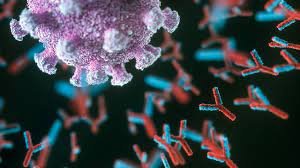Monoclonal antibody treatment prevents COVID-19 progression: Health experts
September 03, 2021 | Friday | News
We need to invest more in developing good antivirals: Dr Randeep Guleria, Director, AIIMS
Image Credit: Shutterstock
Noting the role of experimental medicines in treating COVID-19, doctors from all over India concurred that monoclonal antibody, introduced in the country when the second wave was on the wane, has shown results in high-risk patients, reducing the severity of disease and chances of hospitalisation.
Doctors including Dr Randeep Guleria, Director, AIIMS, New Delhi, Dr Dhruva Chaudhary, Head, Department of Pulmonary and Critical care Medicine, PGIMS, Rohtak, and Dr Shashank Joshi, of Lilavati Hospital and Research Centre, Mumbai, among others were speaking at the Emerging COVID-19 Treatment Therapies session, recently organised by the leading health awareness institution Integrated Health & Wellbeing (IHW) Council in association with Cipla.
Dr Shashank Joshi, Senior Consultant Department of Diabetology and Endocrinology Lilavati Hospital and Research Centre, Mumbai, says, “Now, we have data from recovery trials that show the use of monoclonal antibodies can be extended up to 7 to 10 days and in exceptional cases, can be used in hospitalised patients as well. It is an office drug – we can administer it in the emergency room and patients go home and do not need hospitalisation.”
“A lot of investment has been done in vaccine development but not in antivirals. We need to invest more in developing good antivirals that can be given easily to patients and users in the long run,” says Dr Randeep Guleria, Director, AIIMS, New Delhi.
Dr Dhruva Chaudhary, Senior Professor and Head, Department of Pulmonary and Critical care Medicine, PGIMS, Rohtak, says, “Monoclonal antibodies challenge the notion that only steroids will work, but looking at the cost factor, I think we need to be rational.”









